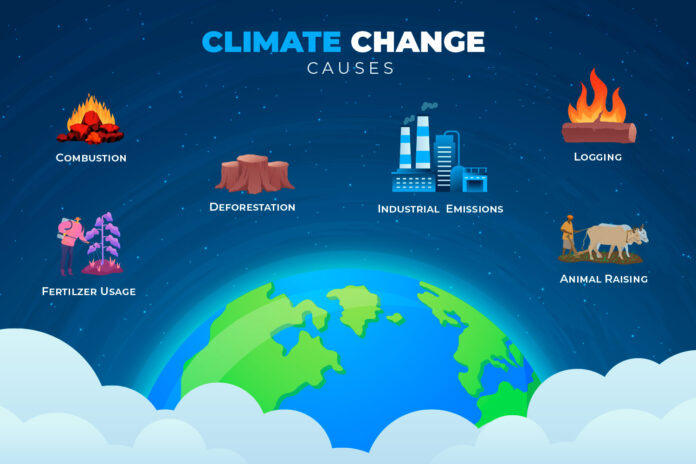Climate change is one of the most pressing challenges facing the world today. It is not just an environmental issue, but also an economic and social one. The effects of climate change can be felt in many different ways, from extreme weather events to rising sea levels, and they can have a significant impact on economic growth and sustainable development. In this article, we will explore the economic and social challenges of climate change and how it affects economic growth and sustainable development.
The Economic Impact of Climate Change
Climate change can have a significant impact on the economy, both in the short and long term. Extreme weather events, such as hurricanes, floods, and droughts, can cause significant damage to infrastructure, property, and crops, leading to economic losses. In addition, the costs of adapting to climate change, such as building sea walls or developing drought-resistant crops, can be substantial.
The impact of climate change on different sectors of the economy can vary. For example, agriculture, forestry, and fisheries are particularly vulnerable to the effects of climate change, as changes in temperature, rainfall, and sea level can affect crop yields and fish stocks. The tourism industry is also at risk, as rising sea levels and more frequent extreme weather events can damage tourist infrastructure and reduce tourist numbers.
In addition, climate change can have indirect economic effects, such as affecting the availability and price of natural resources, such as water and energy. This can lead to higher costs for businesses and consumers, and can also affect the competitiveness of different industries.
The Social Impact of Climate Change
Climate change also has significant social impacts. Extreme weather events, such as hurricanes and floods, can displace people from their homes and communities, leading to social and economic disruption. In addition, changes in temperature and rainfall patterns can affect public health, as they can lead to the spread of diseases, such as malaria and dengue fever.
Climate change can also exacerbate social inequalities. Poorer communities are often more vulnerable to the effects of climate change, as they may lack the resources to adapt to changing conditions. In addition, indigenous communities and other marginalized groups may be disproportionately affected by the loss of natural resources and damage to their cultural heritage.
The Role of Sustainable Development
Sustainable development is a key strategy for addressing the economic and social challenges of climate change. Sustainable development seeks to balance environmental, economic, and social considerations to promote long-term prosperity and well-being.
One way to promote sustainable development in the context of climate change is to focus on renewable energy sources, such as wind and solar power. This can reduce greenhouse gas emissions and promote economic growth in the renewable energy sector.
Another strategy is to promote sustainable agriculture and forestry practices, such as agroforestry and sustainable land management. These practices can help to reduce greenhouse gas emissions, while also promoting economic development in rural areas.
Finally, sustainable urban planning can help to reduce the impact of climate change on urban areas. This can include strategies such as green infrastructure, such as parks and green roofs, and sustainable transportation, such as public transit and bike lanes.
Conclusion
Climate change is a complex and multifaceted challenge that affects the economy, the environment, and society as a whole. The economic and social challenges of climate change are significant, but they can be addressed through sustainable development strategies that promote long-term prosperity and well-being. By focusing on renewable energy, sustainable agriculture and forestry, and sustainable urban planning, we can work towards a more sustainable and resilient future.



